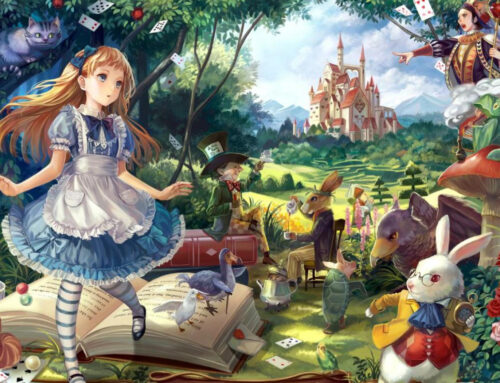April Fools’ Day is the perfect excuse to let your playful side out and prank your friends, family, and even the whole world! Over the years, some of the biggest companies and media outlets have joined in on the fun, creating hilarious and sometimes outrageous pranks that left us all laughing. From Google’s “Google Nose” to McDonald’s “McPickle Burger,” we’ve compiled a list of the top 10 April Fools’ Day pranks of the last two decades. Get ready to laugh, cringe, and maybe even be a little impressed by the creativity of these pranks.
Not in the mood to read? Click here.
Looking for epic merch? Visit our Red Bubble Store!
(1) YouTube Contest
In 2013, the website YouTube announced that it was shutting down and that the site was actually just a contest to find the “best video ever.” The announcement came with a humorous video featuring YouTube celebrities talking about the end of the site.
(2) Google Nose
In 2013, Google launched an April Fools’ Day joke called “Google Nose,” which claimed to allow users to search for smells online. It included a mock video and even had a page that allowed users to “smell” different scents.
(3) Burger King Whopper Toothpaste
In 2017, fast food chain Burger King announced a new Whopper burger that featured a special “Whopper Toothpaste” flavour toothpaste as an April Fools’ joke. They even released a video advertising the toothpaste, which featured people brushing their teeth with it and then taking a bite out of a burger.
(4) Reddit Headdit
In 2014, the website Reddit announced that it was introducing a new feature called “Headdit,” which allowed users to browse the site using only their head movements. The announcement came with a humorous video featuring a dog using the feature.
(5) Duolingo Push
In 2017, the language-learning app Duolingo announced a fake new feature called “Push,” which claimed to be a way for the app to send you physical reminders to practice your language skills. The announcement came with a humorous video showing people receiving unexpected visits from a man dressed in a giant green bird suit (Duolingo’s mascot, Duo) who would encourage them to practice their language skills. While the feature was just a joke, it was well-received by users who enjoyed the humor and creativity of the prank.
(6) BBC Spaghetti Trees
In 2007, the BBC aired a segment on its news program announcing that spaghetti trees in Switzerland were experiencing a bumper crop due to mild winter temperatures. The segment was so convincing that many viewers called in asking how they could grow their own spaghetti trees.
(7) Ninendo’s Pokemon Sleep
In 2019, the video game company Nintendo released a fake trailer for a new game called “Pokémon Sleep,” which claimed to allow players to catch Pokémon while they were sleeping. The trailer featured footage of people sleeping with their phones and even included a real-life sleep-tracking device that could be used with the game.
(8) Netflix Live
In 2015, Netflix released a video announcing a new original series called “Netflix Live,” which claimed to feature comedian Will Arnett making sarcastic comments about everyday objects and activities in real-time. The video received over 1 million views on YouTube.
(9) Google Translate for Animals
In 2010, Google announced a new feature called “Google Translate for Animals,” which claimed to allow users to translate their pets’ thoughts and sounds into human language. The feature included a mock video and even had a page with FAQs and testimonials.
(10) McDonald’s McPickle Burger
In 2017, the fast food chain McDonald’s announced a fake new menu item called the “McPickle Burger,” which claimed to be a burger topped with pickles and nothing else. The announcement came with a humorous video showing the burger being made and people trying it.








